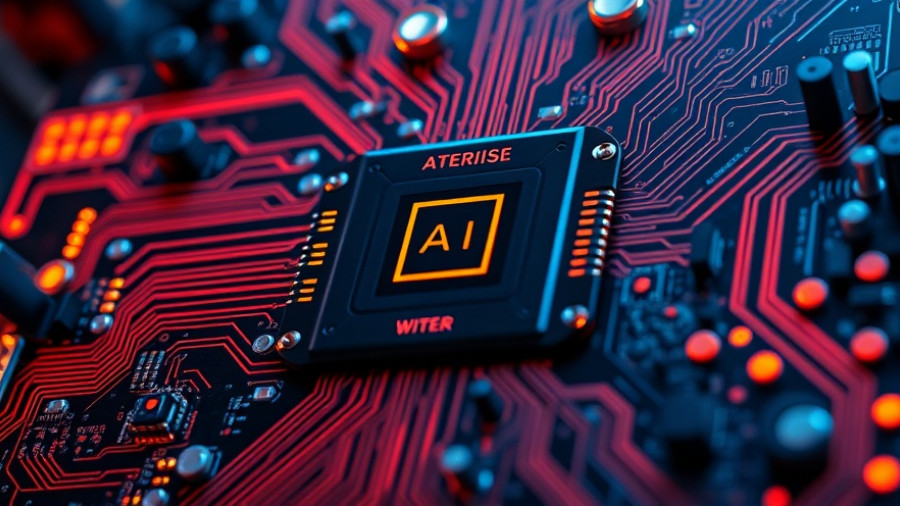
The Future of AI: Beyond Language Models
In the evolving landscape of artificial intelligence (AI), excitement surrounds the capabilities of large language models (LLMs). However, during a compelling discussion at the World Economic Forum 2025 in Davos, Yann LeCun, Meta's chief AI scientist, and Jack Hidary challenged this focus, arguing for a broader perspective that includes novel approaches like Joint Embedding Predictive Architecture (JEPA).
In 'Beyond LLMs: Meta’s Yann LeCun & Jack Hidary on AI’s future | WEF 2025', the discussion dives into the transformative power of AI beyond traditional applications, exploring key insights that sparked deeper analysis on our end.
What is JEPA and Why Does It Matter?
JEPA transforms the way AI processes data. Instead of merely predicting the next word in a sequence, as traditional LLMs do, JEPA aims to create abstract representations of data patterns. For instance, predicting the next frame in a video would typically be a complex task due to the unpredictable nature of visual data. JEPA responds to this challenge by embedding the raw data into a more manageable context, enabling AI to make sense of continuous information much like toddlers understand object permanence.
AI’s Role in Scientific Discoveries
Beyond mere language applications, the potential of AI in advancing scientific research is profound. The conversation touched on pressing issues like Alzheimer's and cancer research, highlighting the urgent need for AI solutions that can sift through complex scientific data efficiently. LeCun emphasized the importance of training AI systems on relevant variables to enhance their predictive capabilities, thereby paving the way for breakthroughs in medical science.
The Intersection of AI and Quantum Technologies
This innovative integration of AI with quantum computing is set to revolutionize how we approach problems in life sciences and other fields. As researchers gather massive datasets across various scientific domains, AI's ability to analyze and synthesize this information could lead to significant advancements in understanding phenomena that were previously elusive.
In a world increasingly driven by technology, the insights shared by Yann LeCun and Jack Hidary at WEF 2025 highlight the need for a paradigm shift in how we perceive and apply AI. For those curious about harnessing AI and quantum technologies to address complex global issues, the journey has only just begun. Embracing these advanced computing solutions not only opens doors to innovation but also enhances our collective ability to tackle pressing challenges in health and beyond.


Write A Comment